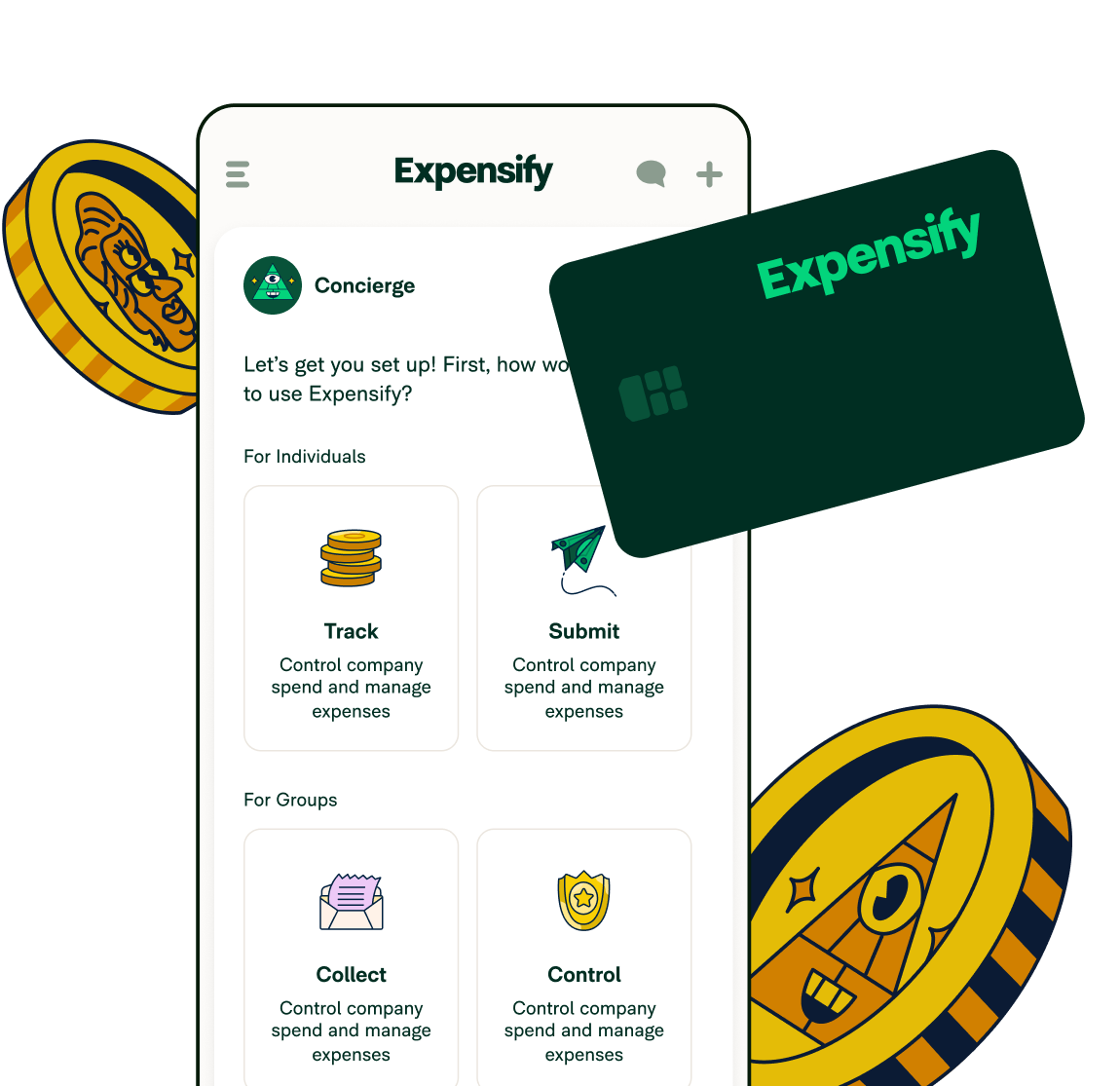Your guide to travel expense solutions

In the hustle of daily business activities, business owners and solopreneurs face the daunting task of keeping up with travel expenses. Proper management of these expenses is crucial for financial clarity and can also significantly influence tax deductions and reimbursements.
In this guide, we’ll help you understand and manage business travel expenses, offering practical advice on streamlining your processes, ensuring compliance, and automating expense tracking.
Understanding business travel expenses
For small businesses and solopreneurs, managing travel expenses presents unique challenges. Proper expense management is crucial not only for maintaining a healthy budget but also for ensuring that all business travel expenses are accurately recorded for tax deductions and employee reimbursements. This task can be streamlined through an array of travel management solutions designed to simplify the process of tracking and reporting expenses while maximizing potential savings.
Travel expense categories
Managing business travel expenses can be a multi-faceted task involving various categories, each with its tax deductibility rules. Here are some common business travel expense categories:
Flights: Airfare for business-related travel is generally tax-deductible.
Hotels: Accommodation costs incurred for business purposes can usually be deducted.
Meals: 50% of the cost of meals during business trips is typically deductible.
Ground Transportation: This includes car rentals, train tickets, and taxis for business travel, which are usually deductible.
Miscellaneous: This may include tips, internet charges, and business calls, often deductible for business needs.
Planning and budgeting
Proper planning and budgeting are crucial elements of successful business travel. The process begins with identifying the trip's purpose and crafting a detailed itinerary. Key considerations should include the travel dates and duration to optimize cost and productivity. Also, research and choose potential destinations and accommodation options that align with the business objectives while remaining cost-effective.
Reporting and reimbursement
Regarding expense management for traveling, clear expense policies are vital for facilitating employee reimbursements and maintaining financial control.
Employees typically incur expenses like transportation costs, lodging, meals, and incidentals during their business travels. To ensure smooth operations and fiscal responsibility, have a clear and accessible expense policy document. It should detail acceptable expenses and provide guidelines on spending limits. The reimbursement process should also be outlined, ensuring employees understand how to report their expenses.
A structured travel and expense management solution simplifies this process. Corporate travel management solutions, like Expensify Travel, can automate expense tracking and reporting, making it easier for businesses to manage their travel expenses and for employees to get reimbursed promptly.
Here’s an example of what an expense policy document might include:
Eligible travel expenses examples: Transportation, lodging, meals, etc.
Spending limits: $50 per meal, $150 per night for lodging, etc.
Reimbursement process: Submit expense forms with receipts within 10 days of returning to get reimbursed for travel expenses.
Streamlining travel expense management
Travel management solutions optimize handling business travel expenses through enhanced tracking, faster reimbursements, and centralized organization, ensuring that every dollar spent is accounted for effectively.
One of the top benefits of a travel management solution is the ability to track and categorize business travel expenses effortlessly. With such systems in place, expenses incurred during travel can be logged systematically, offering realtime insights into spending patterns and helping businesses stay within allocated budgets.
Booking business travel
Using a travel management solution to book your business travel gives you potential access to better deals on airfare, hotels, and car rentals. These systems often offer discounted rates that are not available to the general public. Additionally, they provide a consolidated itinerary, which helps keep track of plans and meetings, thus streamlining the booking process.
Expensify stands out as a robust travel management solution that simplifies expense reporting. Here’s a quick glimpse of how Expensify can make booking business travel easier:
How Expensify Travel helps you manage your travel expenses
Expensify Travel is specially designed to simplify how to track travel expenses for businesses of all sizes. With our mobile app, say goodbye to the stress of expense reporting with features such as receipt scanning and automated categorization, allowing you to capture and organize expenses on the go.
Using Expensify Travel has several benefits:
Receipt scanning: Snap and upload receipts instantly.
Automated categorization: Expenses are sorted with ease.
Mobile app: Manage expenses anytime, anywhere.
Travel planning and booking: Streamline your itinerary.
Prepopulated expense rules: Only see inventory in policy.
Soft and hard approvals: More control on spend.
Collaborative trip rooms: To support employees more with their travel.
But we don’t just stop at tracking. Expensify helps you with planning and booking, equipping you with the tools to maintain accurate travel expense reports, and ensuring that every dollar spent is accounted for, all with unparalleled ease.
Travel expense management: Additional tips and best practices
Here are some additional tips and best practices to make the process of travel expense management more efficient:
Save receipts electronically: Transition to electronic means using a receipt scanning app. This ensures all receipts are well-organized and accessible for travel expense reports.
Set spending limits: Reasonable spending caps, particularly for meals and entertainment, can help control costs without impeding the travel experience. The Expensify Card does just that; with Smart Limits, it caps unaccounted-for expenses so you don’t get any surprises.
Plan in advance: Early bookings for flights and accommodations generally secure better rates, offering substantial savings.
Separate business and personal expenses: Diligently separate personal expenditures from business ones to simplify expense tracking and ensure accurate reporting.
Utilize travel work tools: Embrace business travel management solutions for seamless tracking, categorizing, and compiling expense reports. These tools save time and reduce errors.
FAQs about travel management solutions
-
Generally, if travel is required for your job and takes place within your usual working hours, employers are typically responsible for covering those expenses. This can include transportation, lodging, and meals. However, policies vary greatly between companies, and some expenses may be subject to limits or require prior approval. Check your employment contract, the company's travel policy, or consult with the HR department.
-
The IRS does not specify a maximum claim limit for travel expenses. Instead, these expenses must be ordinary and necessary for business operations. However, to be deductible, travel expenses must be substantiated with adequate records or evidence to support the expenditure. Moreover, certain expenses like meals are subject to limitations—such as the 50% deductibility rule—and must conform to the current per diem rates established by the General Services Administration (GSA) for travel within the continental United States and by the Department of State for international travel.
-
When self-employed, you can claim travel expenses to work if they are solely for business purposes. This includes trips to meet clients, travel between job sites, or attending business conferences. However, daily commutes from home to a permanent workplace are not typically deductible.
-
Managing travel expenses extends beyond just airfare and ground transportation. Other significant costs to consider are:
Accommodations: from budget hotels to luxury resorts.
Meals and entertainment: restaurant bills, groceries for self-catered stays, and networking event costs.
Connectivity: roaming charges, internet access, and Wi-Fi hotspot rentals.
Insurance: travel insurance policies to cover health emergencies or trip cancellations.
Registration fees: for conferences, workshops, or trade shows.
Miscellaneous: includes tips, laundry, currency exchange fees, and other incidentals.
-
According to the IRS, the standard mileage rate for a car, van, pickup, or panel truck for business miles driven in 2024 is 67 cents per mile. This rate is designed to cover not just the cost of gas but also the wear and tear on the vehicle. Remember to check the current rates each year, as they can change based on fluctuations in the cost of operating a vehicle.





